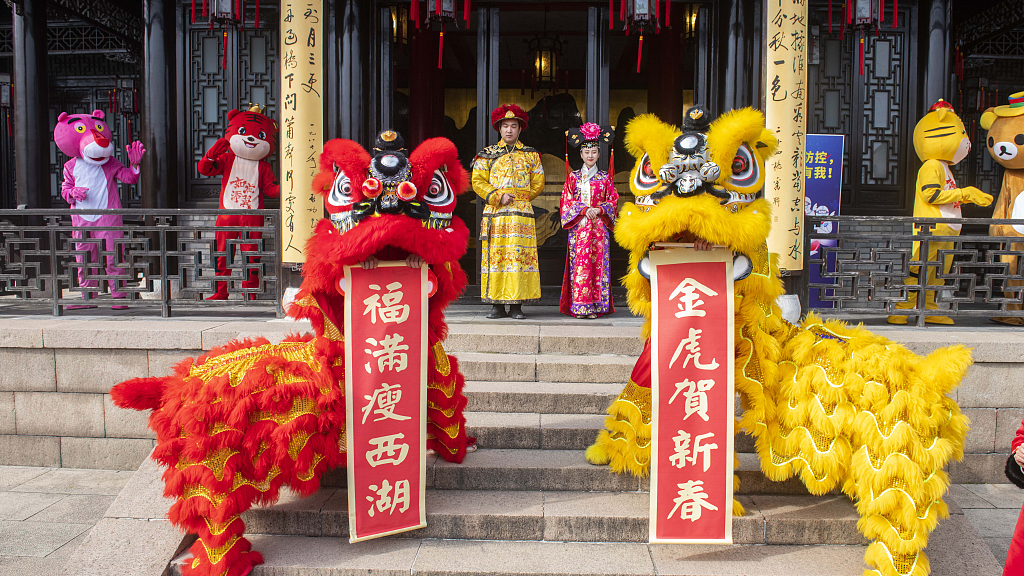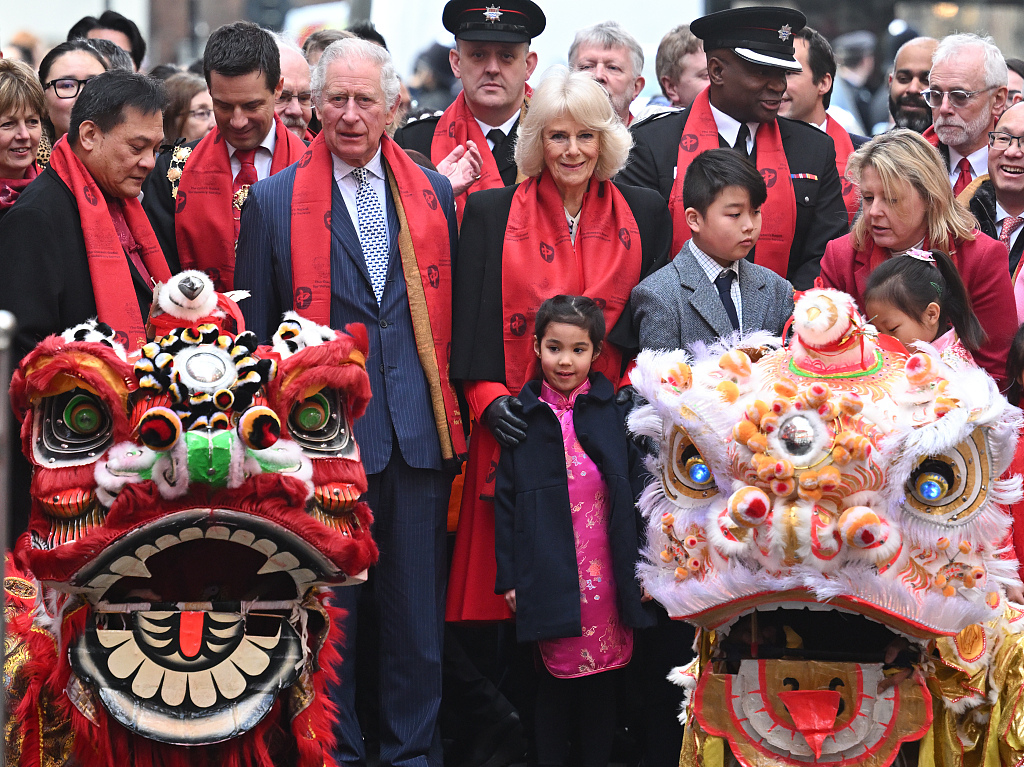
A lion dance is held to celebrate the 2022 Spring Festival on February 1, 2022, Yangzhou of China's Jiangsu Province. /CFP
A lion dance is held to celebrate the 2022 Spring Festival on February 1, 2022, Yangzhou of China's Jiangsu Province. /CFP
Editor's note: Stephen Ndegwa is a Nairobi-based communication expert, a lecturer-scholar at the United States International University-Africa, and an author and international affairs columnist. The article reflects the author's opinions and not necessarily the views of CGTN.
For many people in the world, the Spring Festival - the Chinese New Year - is an intriguing holiday on the global calendar that has acquired the hallmarks of a global holiday.
Apart from China, it is also celebrated by hundreds of thousands of Chinese living in foreign lands. Both the national and international media are awash with stories about the celebrations in various capital cities and the increasing number of Confucius Institutes spreading the Chinese language and culture have helped this annual Chinese festival gain traction globally.
In Kenya, for instance, the 2022 Chinese New-Year Eve program aired in Nairobi live from Beijing featured local dances and Chinese songs by a cross-section of citizens led by students from the University of Nairobi.
Africans particularly find it easy to join in the celebrations as the festival resonates with their culture. Chinese and African traditions share the love for meeting family and friends while exchanging blessings for the future. Chinese traditional values include "harmony, benevolence, righteousness, courtesy, wisdom, honesty, loyalty, and filial piety." So do African traditional values.
The world is searching for harmony amid crises and an occasion like the Spring Festival offers an opportunity to evaluate human development and work in tandem with needs and demands.

Prince Charles, Prince of Wales and Camilla, Duchess of Cornwall visit Chinatown on the occasion of the Lunar New Year on February 01, 2022, London, England. /CFP
Prince Charles, Prince of Wales and Camilla, Duchess of Cornwall visit Chinatown on the occasion of the Lunar New Year on February 01, 2022, London, England. /CFP
The event also showcases China's latest broadcasting capability using the new 4k technology, which ensures ultra-high-definition TV live broadcast, which China has promised to share with other developing countries. It will help the latter leapfrog their broadcasting and even Internet capabilities and upgrade international interactions.
The New Year festivities this time coincide with the Beijing 2022 Olympic Winter Games. Both are joyful occasions that bring together people in a celebration of life, marking a merging of both local and international cultures and fighting for a common cause through the spirit of camaraderie. This is particularly important when the world is going through the COVID-19 pandemic, a once-in-a-century challenge.
While restrictions to keep the pandemic under control will mean the athletes will remain under closed-loop protection, cut off from the outside world, it underlines the efforts for a return to full normalcy and people's willingness to abide by the measures.
This is the year of the tiger in the Chinese zodiac. The tiger symbolizes bravery, competitiveness and confidence. These are the qualities the world needs now to emerge from the socio-economic fallouts of the pandemic. It can also be interpreted to mean that the leadership, in addition to strength, must possess an undying spirit, rekindle hope and inspire the people. The philosophy of the Spring Festival is in line with China's mantra of creating a community of common destiny for all and has no class, race, religious or political considerations.
The Spring Festival marks the gradual warming up of the northern hemisphere after the biting winter cold. It is a season of hope when farming starts to ensure food for the full year, thus sustaining life.
Ultimately, the Spring Festival is about authenticity. While the Chinese follow the Gregorian calendar for both business and official purposes, like the rest of the world, the Lunar New Year is an invaluable heritage. According to some accounts, this lunar calendar dates back to the Shang Dynasty (1600-1046 B.C.) and is a meticulously preserved national and cultural identity.
(If you want to contribute and have specific expertise, please contact us at opinions@cgtn.com.)

